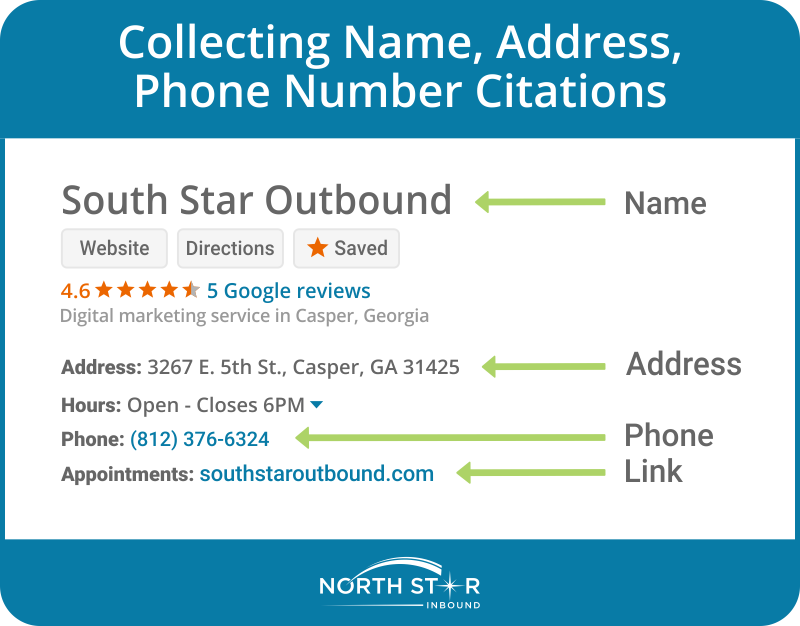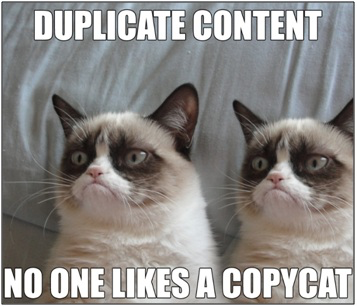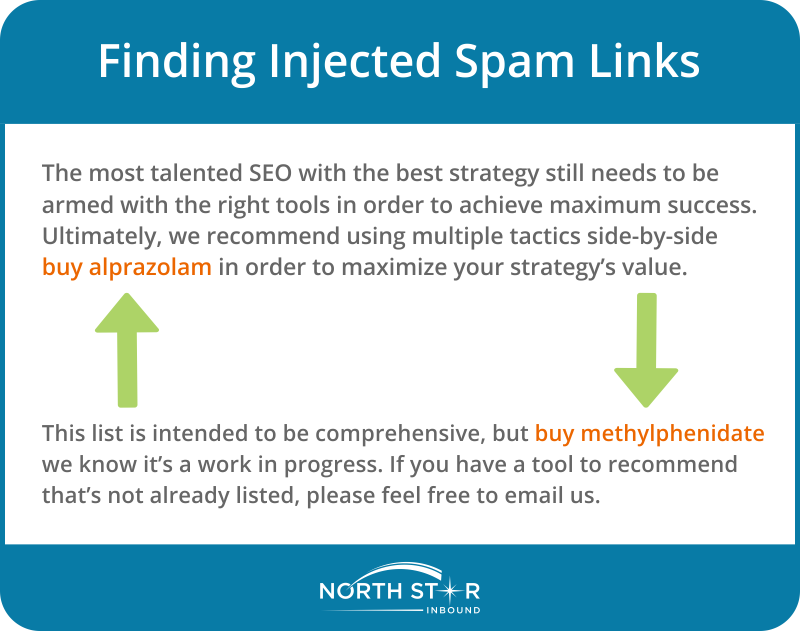Table of Contents
Wouldn’t it be great if there were a free tool that could help you keep tabs on what others are saying online about your business? Something that could send you an email any time you or your company is mentioned on the web? There is!

If you aren’t already using Google Alerts, here’s everything you need to know to get started.
How to Set Up Google Alerts?
1. Go to google.com/alerts
If you don’t already have one, you’ll need to create a Google account. Once it’s ready, log yourself in. Some people use several Google accounts, so make sure you’re logged in with the account you want to use.
2. Select your desired keywords
In the search box, enter the keywords about which you want to be notified. If you primarily want to monitor your brand, set up an individual alert for each variation of your brand name. (Include potential misspellings. Common ones include inserting a space within a single compound word, or adding an ‘s’ to a word.)
For instance, if your business name is South Star Outbound, you might want to set up alerts for:
- South Star
- “South Star”
- South Stars
- “South Stars”
- South Star Outbound
- “South Star Outbound”
- SouthStar
- “SouthStar”
- SouthStar Outbound
- “SouthStar Outbound”
- South Star Inc
- “South Star Inc”
- SouthStar Outbound Inc
- “South Star Outbound Inc”
- www.southstaroutbound.com

3. Tailor your options
- Select the frequency. Click on the Show Options tab to set how many results you want to receive and how often. The choice here is really “real time, or when I have time?” Working with the example from above, if you want to be notified about your mentions right away, you would set SouthStar and www.southstaroutbound.com to alert you As-it-happens.
- Choose your sources. Google Alerts doesn’t cover social media, but you can choose whether to track mentions from news sites, blogs, videos, or even books.
- Specify a language. If you’re only looking for mentions made in one specific language, now’s your chance to make that choice.
- Pick the region/s. If your brand is present only in specific countries – or if you’re expanding into new markets – choosing one region or more can be valuable for targeting results.
- Choose between “only the best” and “everything.” In other words, do you want to know about every mention of your keywords, or will you let Google choose the most important ones? It’s likely that at first, you’ll want to receive all possible results, so find the How Many dropdown and select All Results.
- Direct where results should go. Enter the email address you want Google to send your alerts to. The service can automatically select the one you’re logged into, but you could instead send your alerts to an RSS feed, if you prefer.
NOTE: When your brand name uses common words, resulting mentions might pertain to your business – or to something else entirely. The volume of results might be much higher than you expect, as well. If you find this is the case with your business, then you might want to adjust the frequency of your notices to once a day or even once a week. But continue to receive all the results because otherwise, you might miss something about your business.
4. Set up Google Alerts to monitor specific sites (including competitors)
You can also use Google alerts to track what people are saying about you on specific sites.
If you want to keep close tabs on Facebook or Yelp, you can use the site: operator by inserting one of the following search strings in the alert box:
site:facebook.com SouthStar
site:yelp.com SouthStar
You can also monitor your top competitors using the same techniques, just substituting their names for yours. You might end up knowing more about them than they do about themselves!
5. Hit Create Alert.
And you’re live! Look for emails to hit your inbox on the schedule you’ve specified.
6. Manage or update as needed.
Come back to the Google Alerts page whenever you need to add to or change the parameters of your alerts. You can delete an alert or change its settings at any time.

Why Should I Use Google Alerts?
The Google Alerts service tracks any keyword or words you specify, then sends you an email whenever it finds a page on the web that mentions them. You can choose to get alerts daily, weekly, or “as it happens.” Alerts are simple to set up, and they are completely free.
Google Alerts can be a helpful tool for a number of uses:
- monitoring mentions of your company’s name
- keeping track of other names or issues that matter to you
- tracking competitors’ moves
- surveying industry developments
- heading off potential crises
- finding blogs/publications to accept guest posts
- building your link profile
- and many others.
What Can Google Alerts Do?
So, what exactly can you expect from Google Alerts? The service does a few things extremely well, collecting information from among an immense range of sites and funneling it to you to satisfy the criteria you set.
- It tracks keywords you specify. Choose and monitor any keyword on blogs, forums, news sites, and elsewhere on the web, including YouTube.
- It places mentions at your fingertips. An alert for each mention of a keyword can go to your email inbox or be accessed at google.com/alerts.
- It responds when you want. Mentions can be detected anytime, from minutes to days after they appear, but you can choose how often to receive google alerts so it works with your schedule.

What Do Google Alerts NOT Do?
They don’t kill you – let’s just get that out of the way right now. And there are a few other things they don’t do. The scope and simplicity that make Google Alerts easy and effective means the service does not offer more complex coverage. Several areas of the web and functionalities are not offered:
- They don’t catch all mentions. Results are limited to web sources indexed by Google – largely news sites and blogs, which can miss important conversations happening elsewhere.
- They don’t cover social media platforms. Disregarding mentions on social media can cause you to miss opportunities for customer engagement and support. To monitor these potentially lucrative resources, add a social listening tool to your toolbox.
- They don’t offer analytics or reporting. Alerts can tell you where, when, and by whom your keywords are mentioned – not much more. Some people painstakingly build PDFs or spreadsheets to track mentions, but adding some other automated capabilities instead can help you track important metrics like:
- Growth in the number of mentions over time
- The influence of the people mentioning you
- Audience demographic information
- The character or sentiment of mentions (positive, negative, neutral, newsworthy)
What Are the Most Useful Functions of Google Alerts?
Alerts can offer great functionality and insight for content marketers, social media managers, and other marketing professionals. Here are several possible applications and google alerts tips:
Google Alerts for PR
1. Managing your company’s reputation
To find out how your client base regards you – and to stay out in front of any problems – set up alerts with useful keywords combined with your brand name, such as:
- South Star review
- South Star best
- South Star favorite
- South Star awesome
- South Star glitch
- South Star problem
- South Star scam
- South Star ripoff
- South Star terrible
These combos can help you monitor what customers and others are saying about your brand, good and bad alike. (You want to know both, don’t you?)
2. Keeping track of stories developing within your industry
It’s imperative to stay current with changes as they happen in your niche, not only to be able to roll with them as they affect your particular business, but also to adjust to the resulting transformations in the industry landscape. This is especially important when the story becomes news to the greater world; besides responding accordingly with operational tactics, you also want to be able to join the discussion.
But how do you stay on top of a story in real time as developments happen? First, identify the forums that deliver the most timely and relevant news for your industry, then set up alerts for them alongside keywords for the related topics. If you need to find new forums, set up a Google Alert to notify you of new forum threads about your chosen topic. For example:
SEO + site:spacedoo.com + intitle:(who|what|when|where|how)
3. Developing relationships with reporters who cover your industry
As you’re getting acquainted with the relevant stories, you may notice the work of certain journalists who cover your industry. Keep an eye on the reporters whose work is most interesting or relevant (or upsetting!) by creating alerts for their names along with the publications and topics you want, like this:
Mira Bhandarkar + site:lseo.com + Panda + update
Then you can contact a journalist with a Tweet or email to compliment their article/s, ask a question, or otherwise engage them in discussion. Not only can this help keep your company top of mind with the press, but it also can help you form and develop a potentially fruitful relationship for the future.

Google Alerts for Link Building
Anytime a blog or a public question-and-answer forum mentions your business or brand name, product, or service, you’re presented with a valuable opportunity to garner a relevant backlink from that site. Customized Google Alerts can help you find these potential opportunities for building backlinks and promoting your website and company.
An effective backlinking strategy takes time, patience and creativity, but Google Alerts can cut some of the tedium out of this work by automating the search-and-recognize segment of the process. Here are some ways Google Alerts can help:
1. Finding unlinked mentions
Sometimes you’ll find a website mentions your company name or brand without creating a link back to your site. Usually it just takes a quick contact to get them to create a link! But first, of course, you need to know about the mentions. Set up multiple Google Alerts, one each for all your brand-related terms; then you’ll get an email whenever Google finds new mentions related to your brand on the web.
2. Keeping an eye on the competition
Watching your competitors’ moves can tip you off to marketing tactics that can help you promote your own business. Set up Google Alerts for their business names and any related keywords to keep an eye on them.
Once you know where and how competitors are generating traffic, you can work on replicating their results. For instance, if they’re doing lots of guest posting, figure out which sites are hosting their content, then contact those sites about guest posting opportunities. If a site mentions and links to a competitor, they might also be willing to do the same for your company.
3. Identifying opportunities for guest posting
Guest posts are still a popular way to build your link profile. To find blogs that accept guest posts, try creating alerts using phrases like “write for us,” “how to contribute,” or “guest post by.” Limit these alerts to blogs, and soon you’ll be alerted to new guest posting opportunities.
4. Discussing issues and answering industry questions
Weighing in on industry-related discussions has become an important form of online currency – and sometimes can offer an opportunity to build a highly relevant link! Thought leadership helps others identify you as a resource, which helps potential customers recognize and trust your company. But how do you keep up with the issues being discussed?
First, identify the forums in your industry where your expertise can be of most value, then set up alerts for them in conjunction with relevant topics. If you need to find new forums, set up a Google Alert to notify you of new forum threads about your chosen topic. For example:
SEO + site:growthhackers.com + intitle:(who|what|when|where|how)
When you want to target several forums, you can add several all at once using the OR and site: search operators, like this:
SEO + site:growthhackers.com OR site:forums.digitalpoint.com + intitle:(who|what|when|where|how)
Then jump in! Join discussions or answer questions that make sense for your business. If you find instances where it makes sense, go ahead and link to any relevant (emphasis on relevant!) content on your own site, to help build yourself some targeted referral traffic.
HINT: Queries Are the Key
Regardless of what you want an alert to do, it’s the search query terms that are key to setting them up effectively. Queries are divided by the types of results they return: those for forums/ question-and-answer sites; brand mentions (for your own and competitors’ brands); and the potentially massive list of keywords relating to your site. Here are examples of each type:
Q&A Queries
- “what is the best [product]”
- “I need a [product]”
- “I need an [product]”
- “what [product] do I need”
- “what is a good [product]”
- “what is a cheap [product]”
- “what is the cheapest [product]”
- “what’s the best [product]”
- “where should I buy a/an [product]”
- “where can I get a good [product]”
- “where should I buy a [product]”
- “what are some cool [product]”
- “what is the top [product]”
- Query sets for products that solve problems:
- “How do I/you”
- “How can I/you”
- “I need to”
Brand Mention Queries
Even if your brand is still new and tiny, someone eventually will mention it. Once you get an alert for that, you’re likely to see an occasion where the site mentions you but doesn’t supply a link. If you follow up and thank them for their mention of your brand, there’s a pretty good chance you can get them to turn that mention into a link. These query terms can help you find such mentions:
- “Brand name”
- Brand name misspellings
- URL misspellings
- “Domain name”
- Domain name misspellings
Competitor Queries
If your competition gets a link from a site, and you’ve got a better product, there’s no reason you shouldn’t be able to coax out a link for your brand, too. Competitor queries generally bring less ROI than mentions of your own brand name and website, but they’re still useful for identifying opportunities within your industry or niche. Here are a few:
- Competitor name misspellings
- URL misspellings
- “Domain name”
- Domain name misspellings
Google Alerts for SEO
1. Collecting local NAP citation opportunities
Especially if your company and site are tied to a specific locality, mentions of your business’ Name, Address, and Phone number (NAP) are important to track.

An easy way to acquire these mentions for your own business is by finding sites that list NAP citations for your competitors, then getting your business info added to the same sites.
To find these citations, search Google for a competitor’s name, phone number, and address. Then set up an alert using the information you find. Like this:
“West Star Overbound” + “063-555-1212” + “3850 West Star Blvd”
Once you’re alerted to sites listing your competitor’s NAP, you can grab each website’s info and submit your own NAP info. With the Google Alert in place, you’ll be notified anytime your competitor gets a new citation, so you can stay in step. For maximum effect, repeat this process for as many competitors as you care to monitor.
2. Learning what your competitors are publishing
Successful businesses publish outstanding blog content, and it’s important to keep an eye on what your competition’s saying in their posts. Not only can monitoring help you discover new topic ideas for your own blog, it also can keep you advised if they publish competing content. To set up a Google Alert to monitor new blog posts from a competitor’s site, use the site: search operator and the blog’s URL (plus the OR search operator to track posts from more than one):
site:moz.com/blog OR site:buzzstream.com/blog
And if you want to search blogs only for a specific topic, add it to the beginning of the search field with a + sign:
SEO + site:moz.com/blog OR site:buzzstream.com/blog
3. Correcting duplicate content and other indexing errors
Sometimes Google indexes pages from your site that you might not want indexed, like ones that are paginated, contain outdated or unhelpful content, or have limited URL parameters. There are also dozens of ways to end up with duplicate content, which dilutes your keyword ranking and muddies your online presence. Setting up alerts can help you nip these indexing errors in the bud before they present a real problem.

To set up an alert, first identify the URL footprint that’s common to all the undesirable pages. (This varies by URL, so it’s something you’ll have to determine yourself.) For example, it’s a common problem for a site to register duplicate content on search engines, such as when the same page content results under slightly different URLs, like so:
http://www.southstaroutbound.com/keyword-1/
http://www.southstaroutbound.com/article-category/keyword-1/
So, to begin finding all the URLs on your site that contain your keyword-1 article, type the following search phrase into Google:
site:southstaroutbound.com intitle:”keyword-1”
The more specific the intitle: part of the query is, the more effective it will be at picking up your duplicate content. You can enter the entire title of an article or even try searching for one or two complete sentences from it.
This technique can also be applied to weed out specific file types. For example, if you don’t want Google to index PDFs from your site, use the filetype: operator in your footprint, like so:
site:w3.org filetype:pdf
4. Safeguarding your company against link-injection hacks
Link injection is what happens when hackers break into a website’s code and inject bad links to garner illicit SEO gains. Two qualities are dead giveaways of a malicious injected link:
- They have spam hallmarks. Using easy-to-spot exact-match anchor text, the link clearly leads to a page whose niche is completely different from yours.
- They don’t match the context. The anchor text makes no sense within the sentence where it’s inserted.

These injections can be hard to notice unless you inspect every page of your website regularly. However, if you set up alerts for a bunch of keywords synonymous with link injections, Google Alerts can notify you whenever one happens.
Employ the advanced search operators OR and site: to restrict any results to only those from your site. Here’s an example of possible terms to try:
site:southstaroutbound.com + “debt” OR “aging” OR “viagra” OR “buy” OR “FREE”
5. Preventing theft of your digital products
If your business sells any digital products, it’s likely that torrent sites give you grief on the regular by offering up ways to illegally download your ebooks, training materials, or educational courses. Google Alerts can keep you informed about illicit download pages it notices, using this footprint:
southstaroutbound + “monitor your brand” + (download|torrent) -site:southstaroutbound.com
How Do I Manage/ Optimize My Google Alerts?
Once you’ve considered the goals Google Alerts can help you achieve and you’ve set up your alerts accordingly, then you’re ready to take steps beyond the basics. These center around two objectives: 1) broadening the search to elicit as much good information as possible, and 2) managing the resulting flow of emails so you’re not trying to drink from a firehose.
To maximize your number of results:
- Be specific. Avoid using generic or common keywords.
- Create multiple alerts to cover different variations of common search queries.
- Include common misspellings of your search terms.
- Get creative by combining keywords and commands.
- Use quotation marks around multi-word search terms and limit your alert if you want your results to include only that exact phrase.
- Use advanced search operators (such as + or site:) to refine your search.
- Test your search queries in Google first to make them as specific as possible without losing good results. Once they’re in good shape, then add them to the parameters of your Google Alerts.
To manage the receipt of your results:
- If you’re overwhelmed, set alerts to “At most once a day.” This will make sure that you’re not getting hundreds of emails daily.
- Use email filters whenever possible to direct notifications to designated folders.
- Use Google Inbox to bundle emails into groups and limit the constant barrage of emails.
- Use the “exclude” function to keep a particular alert from being sent to a bundled folder. Enter the subject line of the alert you want to exclude in quotes, like this: “Google Alert – [ALERT TITLE]”
How Do Google Alerts Work and Is It Still Working?
Google alerts works by noticing any new additions or changes to pages on the web for a given query and notifying the user of those changes by sending an email. Or at least that’s the way it is supposed to work.
But unfortunately, many SEOs and marketers have noticed that Google Alerts are unreliable, leading many to say that Google Alerts is not working. In fact, in 2013, Google admitted that the service was experiencing some reliability issues.
Are your Google Alerts not working? If not, I hope you review this guide to see if perhaps you’ve set them up incorrectly.
In our experience, Google Alerts works. It just won’t catch and email you for every single mention of your terms. Bummer! Even so, Google Alerts remains an important and free tool that we use to monitor the web.
Stay Alert
All in all, Google Alerts offers you a monitoring tool that you can customize to fit your needs. They can be as simple as you want them to be, just pinging you whenever you get mentioned online. Or, once you take advantage of specialized query settings, they can be part of your much more sophisticated toolbox, helping you move into keyword monitoring, competitive strategy, industry thought leadership, link building, and security maintenance. All you have to do is set them up – and stay alert!






